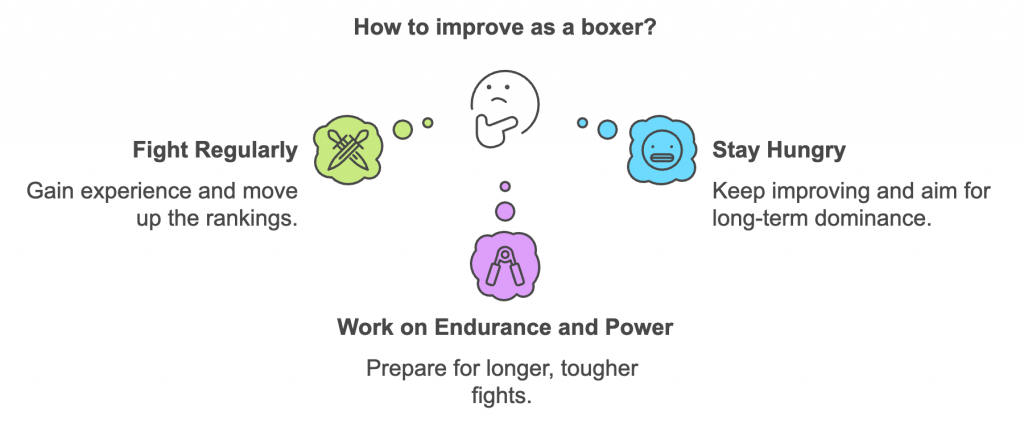How to Become a Professional Boxer
So, you’re ready to take the leap and become a professional boxer? Awesome! But let’s cut to the chase—it’s not just about stepping into the ring. Becoming a pro takes years of hard work, dedication, and a solid game plan. Whether you’re just starting or already have some amateur fights, this guide will walk you through everything you need to know.
Every step matters, from finding the right gym to building your skills and eventually earning your professional boxing license. Let’s get started on your journey to becoming a professional boxer!
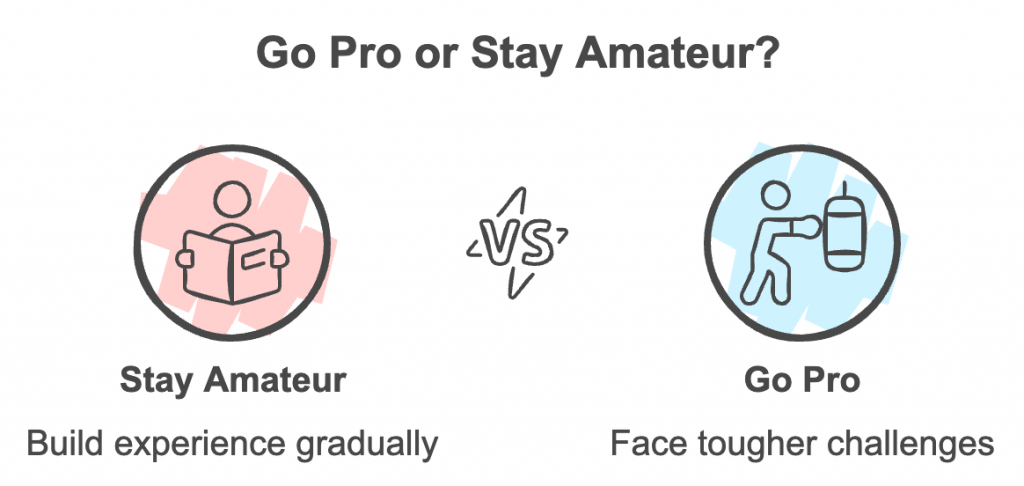
Start Early, but It’s Never Too Late
Most pro boxers start their way young, often in their teens. It helps to get extra years of experience. Still, don’t sweat it if you’re starting later—plenty of boxers have gone pro in their 20s or 30s. The key is how hard you’re willing to work and how quickly you can develop your skills.
Younger boxers have more time to build a foundation, but older starters frequently bring more focus and self-confidence. So, if you’re getting a late start, just be prepared to put in extra hours. Consistency is everything. Keep in mind that it’s not about when you start but how dedicated you are to the grind.
Your goal? Focus on mastering the basics, building resilience, and getting as much sparring experience as possible.
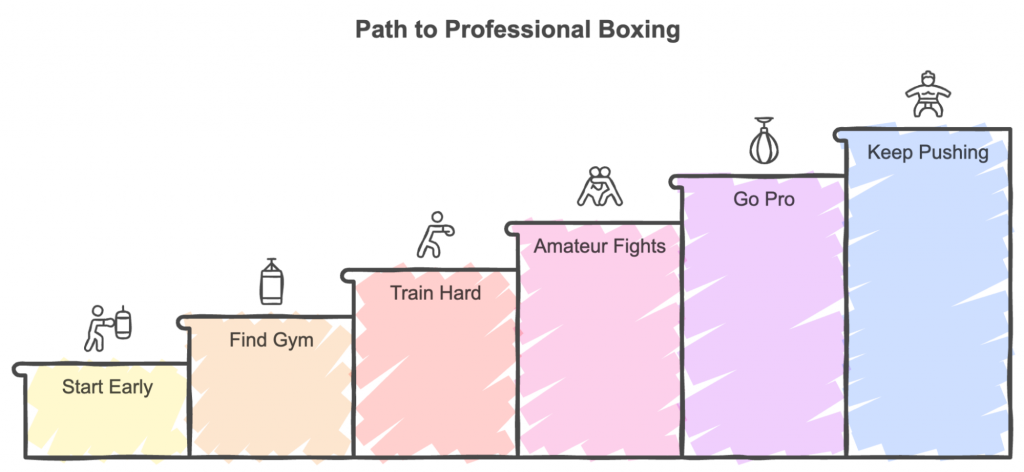
Find the Right Gym
Not all gyms are created equal, especially if you’re serious about going pro. Your goal is a special boxing gym, not just fitness classes. Look for one with experienced coaches who have trained both amateur and professional fighters.
A good boxing gym will offer more than just equipment—it’ll provide a community of fighters you can spar with. Sparring with different skill levels is crucial for your growth. If you’re the best fighter in your gym, it’s probably time to find a new one. You need a place where you can constantly challenge yourself and improve.
Look out for structured classes aimed at fitness enthusiasts. These can be great for general conditioning, but if you aim for the pros, you need one-on-one coaching and real fight preparation. Your gym should feel like a second home, where you’re pushed to your limits every time you step in.
Train Like a Beast
Training to become a professional boxer is no joke. You’ll need to train hard and often—90-minute sessions three to four times a week. Here’s a short list of what that might look like:
- 20 minutes of sit-ups and push-ups to build core and upper body strength.
- 20 minutes on a stationary bike to improve your cardio endurance.
- 30 minutes of jogging for resilience (consider this to be your foundation for going the distance in the ring).
- 10 minutes of jump rope to sharpen your footwork and coordination.
- 10 minutes of sparring with a punching bag—or better yet, a real opponent—because nothing beats the experience of an actual fight.
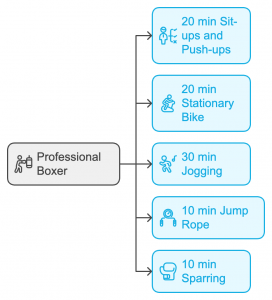
Mix strength training, speed drills, and recovery exercises to avoid injury. And please keep in mind your footwork. Fancy punches mean nothing if you can’t move efficiently around the ring. Remember, boxing is a full-body workout—speed, endurance, and power all play a role.
Train hard, but train smart. Push your limits, but give your body time to recover. That balance is the key to lasting success.
Get Amateur Experience
Before thinking about going pro, you need to step into the ring as an amateur. This is where you’ll learn how to handle real fights—footwork, defense, staying calm under pressure, and, most importantly, winning.
Start with local club fights and work up to more competitive amateur tournaments like Golden Gloves. The amateur scene is about gaining experience, building your reputation, and testing your skills against various opponents. Every fight teaches you something new, whether you win or lose.
Your amateur record is crucial—it shows promoters and potential managers that you’ve got what it takes to make it in the professional world. Aim to get as many fights as possible, but don’t rush. The more experience you have in the amateur ranks, the better prepared you’ll be when jumping to pro.
Winning tournaments and making a name for yourself at the amateur level are vital in attracting attention when you’re ready to turn professional.
Go Pro!
Once you’ve built a solid amateur record, it’s time to think about going pro. But transitioning from amateur to professional is a giant step. Pro fights are longer and more challenging, and no headgear can protect you. Here’s what you need to do:
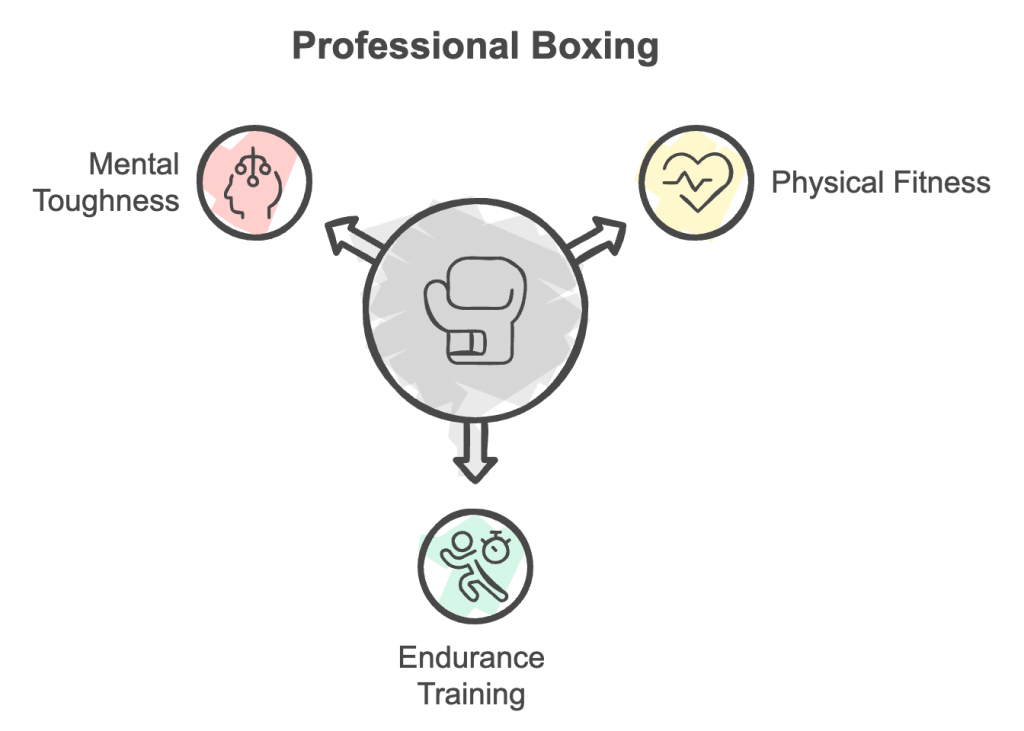
Once you’ve got your license and feel ready to compete, you’ll start your professional journey with smaller fights. Remember, it’s not about winning immediately—building experience and climbing the ranks. Keep your eye on the prize, but focus on one fight at a time.
Keep Pushing and Stay Focused
Going pro is just the beginning. Now that you’re in the professional ring, the development doesn’t stop; it boosts. Early in your pro career, you’ll be taking on smaller fights with modest pay, but these fights are crucial for building your reputation and honing your skills.
Challenges to Watch Out For
Becoming a pro boxer isn’t just about winning fights—it’s about navigating the ups and downs that come with the sport. Here are some key challenges you need to be ready for:
No matter what, these challenges are part of the game. The fighters who rise to the top are the ones who learn to handle the setbacks and keep going.
You Got This
Becoming a professional boxer is no easy feat, but the rewards are there if you’re ready to work. It’s a journey of dedication, hard work, and grit, from training to your first amateur fight to stepping into the ring as a professional.
You’ll face physical and mental challenges, but staying focused on your goals, training smart, and pushing through setbacks will keep you moving forward. Every round in the ring is a step closer to your dream of becoming a champion. Your path to becoming a pro boxer starts now. You’ve got this!

